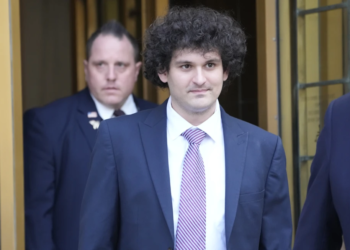In a New Zealand court on Thursday, two individuals involved in the operation of the once immensely popular piracy platform Megaupload received prison sentences exceeding two years. Mathias Ortmann and Bram van der Kolk had been engaged in an 11-year legal battle to evade extradition to the United States, where they faced more severe charges, including racketeering.
Last year, the men reached an agreement with prosecutors from New Zealand and the U.S., leading them to plead guilty to participating in a criminal organization and causing financial losses to artists through deceptive means.
Meanwhile, Kim Dotcom, the founder of Megaupload, continues his resistance against the U.S. charges and the looming threat of extradition. Dotcom anticipates that his former associates will provide testimony against him as part of the agreement they made.
According to U.S. prosecutors, Megaupload amassed a minimum of $175 million, predominantly from individuals utilizing the platform for unauthorized downloads of music, TV shows, and movies. The FBI intervened in early 2012, shutting down Megaupload and apprehending Dotcom and other executives of the company.
Mathias Ortmann received a sentence of 2 years and 7 months, while Bram van der Kolk was sentenced to 2 years and 6 months. Despite facing a maximum sentence of 10 years, both men argued for home detention. In an unusual move, New Zealand Judge Sally Fitzgerald granted their request to delay serving their sentences until August due to humanitarian reasons. Ortmann is expecting the birth of a child, and van der Kolk’s mother is ill. This decision was reported by the news website Stuff.
Judge Fitzgerald acknowledged that the victims of Megaupload included large multinational film and music companies, but she also highlighted that smaller businesses, such as a New Zealand software firm, were affected, as reported by Stuff.
Kim Dotcom, the founder of Megaupload, expressed his dissatisfaction with the sentences, considering them to be lenient. He claimed that this demonstrated the desperation of U.S. prosecutors in the case. Dotcom stated that he had been informed that both men would be eligible for parole after 10 months.
Dotcom expressed his perspective on the sentences, tweeting, “They will serve less than a year instead of the 185 years we were charged with. Good for them.”
Following their arrest in 2012, Dotcom and the other two individuals established a legitimate cloud-storage platform called Mega. However, Dotcom sold his stake in the company and experienced a falling out with his former associates.
Throughout the legal proceedings, Dotcom and his co-defendants’ lawyers consistently argued that the responsibility for piracy lay with the users of the Megaupload site rather than the founders themselves. Prosecutors, on the other hand, contended that the men were the masterminds behind a vast criminal enterprise.
Another officer of the company, Finn Batato, was also arrested in New Zealand in 2012, but U.S. prosecutors sought his extradition. Batato ultimately returned to Germany, where he passed away from cancer last year.
In 2015, Andrus Nomm, a computer programmer for Megaupload from Estonia, pleaded guilty to conspiracy to commit felony copyright infringement in the case. He received a sentence of one year and one day in U.S. federal prison.
While New Zealand’s Supreme Court has ruled that Dotcom can be extradited to the U.S., the country’s justice minister has yet to make a final decision on the matter. This decision can be appealed, further prolonging the proceedings within the sluggish New Zealand legal system.





























